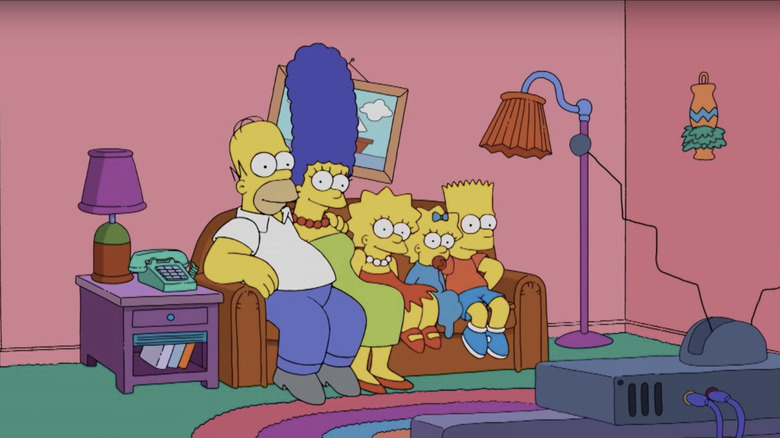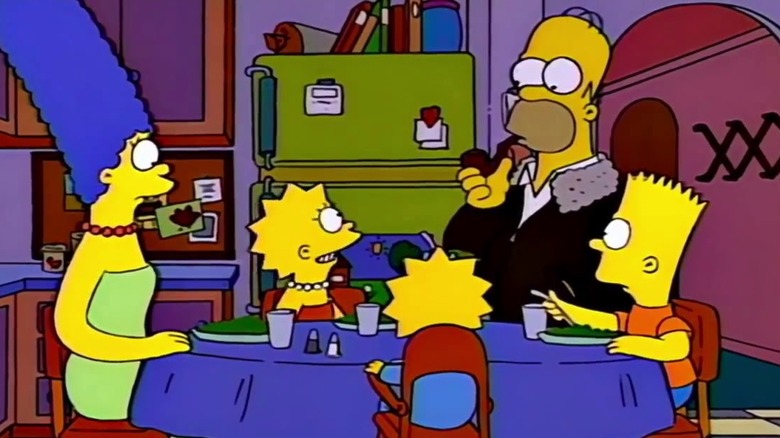Don't Let The Creators Of The Simpsons Hear You Call It A 'Cartoon'
There's always been a bit of a stigma around cartoons. Since its origins, animation has not always been seen as a legitimate art form and is often considered cheap kids' stuff. This dismissal of the animation industry has resulted in things from the under-compensation of voice actors to writers at the 2022 Oscars referring to the whole genre as being "just for kids."
In recent years, the idea that cartoons are only meant for children has faded a bit, with hit shows like "Family Guy" and "Rick and Morty" proving that sometimes animation is absolutely not meant for children. But for the show that paved the way for those adult animated series, "The Simpsons," that stigma was a hurdle that had to be overcome for the show to be greenlit.
It was 1989, and the young Fox network needed shows to fill out its primetime lineup. One of the contenders was an animated upstart headed up by Matt Groening of "The Tracey Ullman Show." He and his team had come up with a simple concept: an animated family sitcom. Putting an animated show in a primetime slot would be a huge risk for the network. Animation hadn't been on primetime television since the '60s, and the crew on "The Simpsons" knew it was a bit unconventional.
"There was 'The Flintstones' and 'The Jetsons,' but that was a long time ago," said animator Carol Wyatt in an "Icons Unearthed" interview. "It was kind of amazing that we were going to be competing against 'Roseanne,' '60 Minutes,' that was unheard of."
But even as the creators of an adult cartoon themselves, some on the team on "The Simpsons" still despise the label of "cartoon" for their series.
An animated series
"The Simpsons" started out as a surprisingly grounded series, with the family struggling with things like financial problems and everyday issues that other sitcoms tended to ignore. As the show went on, those realistic issues went out the window in favor of wackier and funnier plots, leading to creator Groening even saying that "Futurama," a show that takes place a millennium in the future and features many alien characters, is a more "real" show than "The Simpsons."
But early on in the show's lifespan, when its feet were still firmly planted on Earth, the show's team had a real desire for it to be taken seriously. This included an avoidance of the term "cartoon."
"I don't call it a cartoon, I call it an animated show," said director Wes Archer in the "Icons Unearthed" video. "Common usage of 'cartoon' signifies something for a younger audience, or else something wacky."
"I consider it an animated series because it was supposed to be like a sitcom," added Carol Wyatt.
While this whole argument is based on the frivolous semantics of labeling, I think it's quite interesting that some of the pioneers of the adult cartoon genre are still afraid to use the word "cartoon" themselves, even all these years later. With the level of success "The Simpsons" continues to achieve, you'd think the use of a word like "cartoon" wouldn't faze people anymore, but I suppose those stigmas are hard to unlearn.

